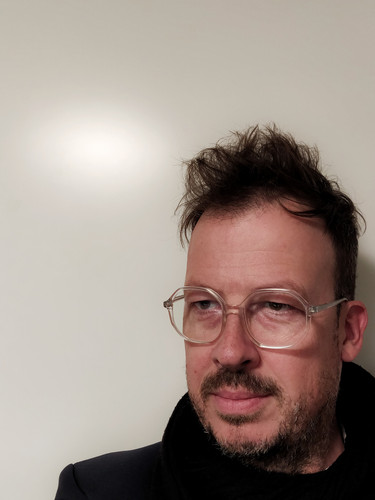Participant of Panel 1: Markus Bader (Floating University)
floating university, A nature culture learning site - Urban Practice on and in the rainwater retention pool of Tempelhof airport since 2018.
Floating e.V. is a self organised space and group, where practitioners from a wide range of backgrounds meet to collaborate, co-create and imaginatively work towards futures. It is in solidarity with the history of the site and with the lineage of alternative narratives for urban development that the Floating e.V. situates its mission: to open, maintain, and take care of this unique site while bringing non-disciplinary, radical, and collaborative programs to the public. In other words, it is a place to learn to engage, to embrace the complexity and navigate the entanglements of the world, to imagine and create different forms of living.
Markus Bader (Floating University)
Markus Bader leitet seit 2016 das Fachgebiet für Entwerfen und Gebäudeplanung. Zuvor hatte er Gastprofessuren an den Universitäten Kassel, Düsseldorf und der Akademie für angewandte Kunst in Prag inne und war als wissenschaftlicher Mitarbeiter an der BTU Cottbus tätig. Er ist Mitglied der Gruppe raumlaborberlin. In ihrer Praxis verbindet die Gruppe die Felder der Architektur, Kunst und Performance mit strategischen Fragestellungen aus der Stadtentwicklung. Viele Arbeiten von raumlabor beschäftigen sich mit oder platzieren sich in öffentlichen Räumen. Zu seinen zivilgesellschaftlichen Engagements zählen die Mitwirkung im floating e.V. und in der Initiative Haus der Statistik - für eine gemeinwohlorientierte, inkusive Standort- und Immobilienentwicklung. Seit 2016 gehört er dem Rat für die Künste Berlin an, seit 2019 dem Beratungsausschuss Kunst beim Kultursenator. Sein Forschungsinteresse gilt der architektonsichen Praxis und ihrer Veränderung im Kontext aktueller globaler und gesellschaftlicher Herausforderungen. Er interessiert sich für experimentelle, transversale Lern- und Lehrformate, sucht hier die Kooperation zwischen Hochschule und Praxen sowie interdisziplinär in verschiede Disziplinen hinein. Das aktuelle Forschungsprojekt making futures bauhaus + untersucht die veränderte architektonische Praxis und Lernumgebung mit den beiden Such-Perspektiven einer gemeinwohl- und gemeinschaftsorientierten Architektur.
